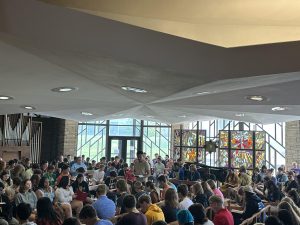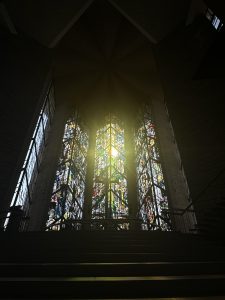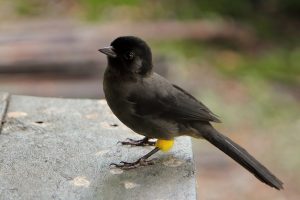
Yellow Thighed Finch, Costa Rica
As we explore questions of leadership and service at Valpo, we talk a lot about leadership in times of complexity and challenge, or serving the world’s deep needs. While it is valuable and necessary to think about how we can change things for the better, our leadership and service must also be marked by a humility that understands that “we” might not have the right answers, or the tools necessary to “fix,” and that we might actually need to change something about ourselves, rather than about the world.
More to the point, what happens when we see the world as good as we lead and serve? What happens when we see those we seek to serve as having assets, resources and capital that we ourselves might not have? Does anything change?
In my capacity as a Lutheran Deaconess, I was recently invited to share with students of the Lutheran Diaconal Association at Valparaiso University on the topic of one of our diaconal hallmarks: Prophetic Voice. This powerful hallmark reads:
“Individually and as a community, the diaconate points to God’s vision of shalom (peace, wholeness, and salvation) for the whole creation. Through action and word, the diaconate raises a prophetic voice, calling and recalling the church to its diaconal task, advocating with those whose voices have not yet been heard, exposing injustice and oppression and reminding all God’s people that in God’s realm the least is the greatest. Lest they lose sight of God’s vision of shalom, members of the diaconate also remain open to the prophetic voice of others, especially those on the margins, who challenge them to remain faithful to their diaconal call.”
Specifically, the diaconal students were looking at this point in the hallmark: “A Deaconess/Deacon identifies personal power and cultural privilege, using these as opportunities to lift up those caught in cycles of powerlessness and oppression.”
Susan L Maros points out in her book, Calling in Context, that it’s often harder to see our own power, and easier to see where we feel our power is lacking. In situations where we are the ones with personal power and cultural privilege, how do we learn to identify this and to listen to the abundance present in the world, to the voices of those who have assets and resources we have never considered?
Rabbi Abraham Heschel, an inspiration and mentor for Dr. Martin Luther King, Jr, writes in the introduction to his book on the Prophets that the key attitude to cultivating a prophetic stance is to be “sensitive to God’s spirit” and to “know what we see rather than see what we know.”
What does this mean, knowing what we see rather than seeing what we know? I am reminded of the time that I was bird watching in a Costa Rican cloud forest, practicing my binocular skills with some US university students. I saw a gray bird in a cypress tree, looking quite unremarkable. I almost walked right by. Then I used my binoculars and saw that the bird actually had bright yellow “pants,” feathers along its legs that are a delightful surprise. This aptly-named Yellow Thighed Finch is endemic to Costa Rica and Panama, and thus by identifying it upon closer inspection I was able to see a bird that very few people in the world actually get to see.
How many times have we assumed we knew what we were looking at, whether it be a bird, or a political question, or a conversation with our partner or other relative? How often do we take the time for a closer look? How often do we stick with it long enough to be surprised?
The particular challenge of the diaconal hallmark comes when we are asked to identify personal power and cultural privilege. Those of us with a lot of power and privilege don’t get our assumptions questioned very often. It can be easy to run roughshod over others through simple “privilege inertia” that allows us to plow forward even if what we are doing is nonsensical, or at worst, harmful to others. When we come from a position of personal privilege and cultural power, standing for God’s shalom means problematizing our own position, and practicing humility and justice.
Can we with power and privilege come to know better what we see, and be humbled by the bright yellow feathers on the seemingly simple, gray bird? And when we notice and understand the strength held by others, how does this change our behavior?
A friend recently pointed out that people who speak two languages are not often credited with the unique strength that is being bilingual. Bilingualism brings with it many more benefits than simply being able to speak two languages. The US Department of Education points out that bilingual people have better critical thinking skills, are better at remembering information, have an easier time with math and logic, and can more easily understand and learn more languages. They can code switch between cultures, understand divergent viewpoints, and even identify more emotions and ideas due to the fact that they have a larger vocabulary overall. And yet, in our society students with a first language other than English are seen as “behind” in school, Deaf people are losing access to ASL in school, and high-stakes standardized tests are built for monolingual English speakers, failing to showcase the strengths of bilingual people.
What other areas have you noticed where characteristics that are largely seen as deficits might actually be assets? How does changing our mind about these characteristics open us to promoting God’s shalom in our communities?
-by Deaconess Kat Peters, M.Ed, M.A, Assistant Director of the Institute for Leadership and Service
Photo credit: By Cephas – Own work, CC BY-SA 4.0, https://commons.wikimedia.org/w/index.php?curid=34218026
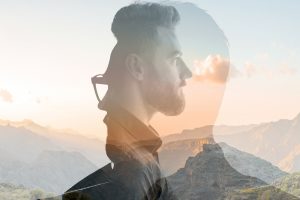 For my second blog in two weeks, I was really struggling to find an experience that I did not touch on the week before this. As I was reflecting on my summer, already at the halfway point of this experience with Jacob’s Ladder and the CAPS Fellowship, I was thinking about what is a lesson I have learned.
For my second blog in two weeks, I was really struggling to find an experience that I did not touch on the week before this. As I was reflecting on my summer, already at the halfway point of this experience with Jacob’s Ladder and the CAPS Fellowship, I was thinking about what is a lesson I have learned.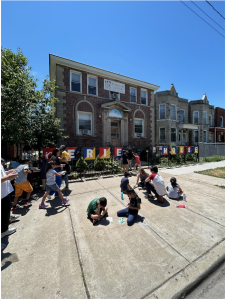
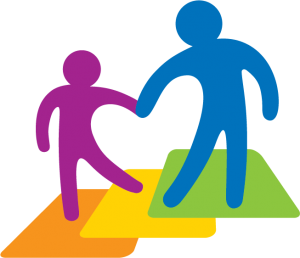
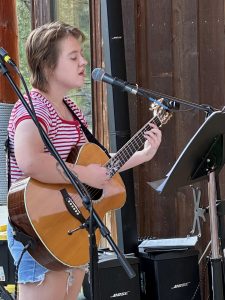
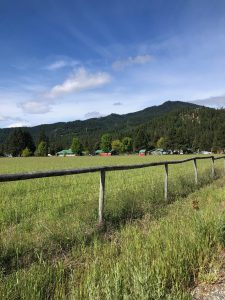
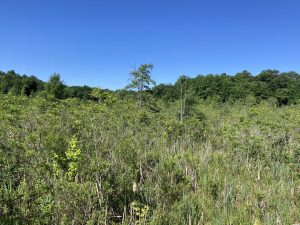
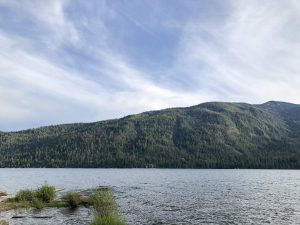
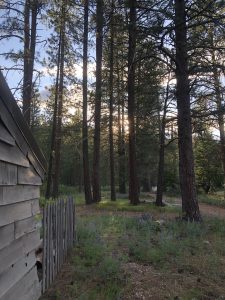
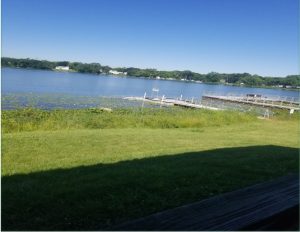 While the camp season has only just begun, I have had many different opportunities to fulfill my duties of collecting the necessary data for the camp. One of the biggest skills that I have used in the short time that I have been here is the art of creative productivity. In my position of direct observational research, that often means spending a lot of my day, directly or indirectly, interacting with campers. This has meant that, on multiple occasions throughout my week, I am often jumping in on games of “duck, duck, goose”, hanging out at the archery range, or even taking an afternoon boat ride around the lake.
While the camp season has only just begun, I have had many different opportunities to fulfill my duties of collecting the necessary data for the camp. One of the biggest skills that I have used in the short time that I have been here is the art of creative productivity. In my position of direct observational research, that often means spending a lot of my day, directly or indirectly, interacting with campers. This has meant that, on multiple occasions throughout my week, I am often jumping in on games of “duck, duck, goose”, hanging out at the archery range, or even taking an afternoon boat ride around the lake. 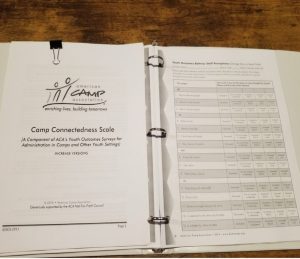
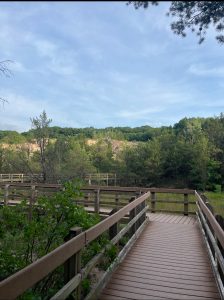 hoved in a drawer, a hair tie that had been long abandoned, maybe a water bottle that had been forgotten during a quick departure. It is apparent to anyone who works in the Barker House that I don’t usually sit at my desk, and that’s something that I’m quite proud of. Let me explain.
hoved in a drawer, a hair tie that had been long abandoned, maybe a water bottle that had been forgotten during a quick departure. It is apparent to anyone who works in the Barker House that I don’t usually sit at my desk, and that’s something that I’m quite proud of. Let me explain.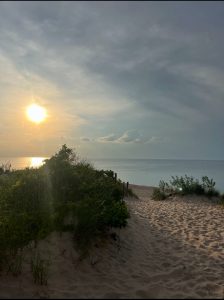

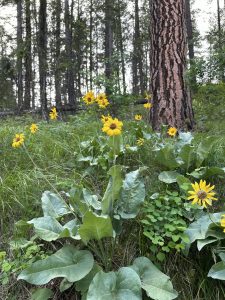
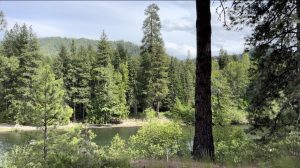

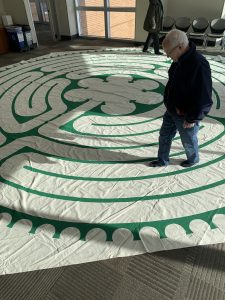 When I was a Valpo student, vocation was often discussed in my circles as being the place where one’s “deep gladness and the world’s deep hunger meet.” This is a classic statement from
When I was a Valpo student, vocation was often discussed in my circles as being the place where one’s “deep gladness and the world’s deep hunger meet.” This is a classic statement from 

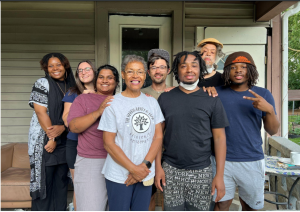
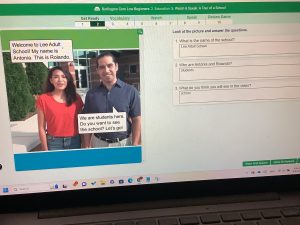
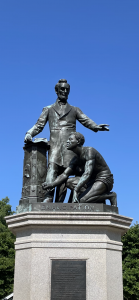

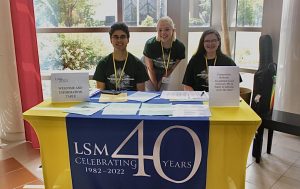

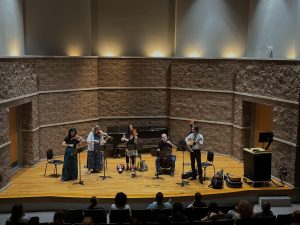
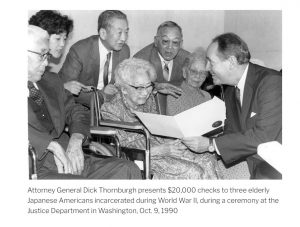
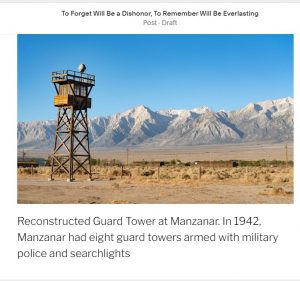
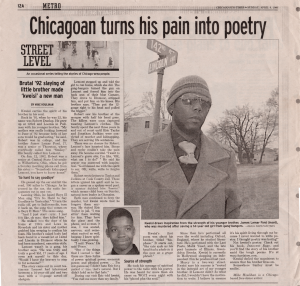
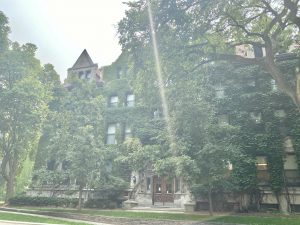
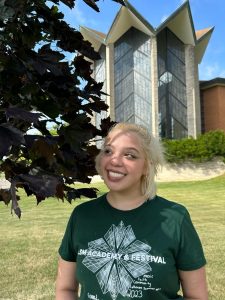 While Lutheran Summer Music, or LSM, has been around for 40 years, this was my first year. As a social work major with an art minor and no prior experience in music, joining the LSM community was intimidating. Luckily, with an art concentration in my background, I know that art comes in many different forms, and all forms of art are enjoyable for me. Although coming into LSM, I knew little about anything musical, nor had I ever listened to ‘nonpopular instrumentals’. So I was a bit out of my comfort zone, although the mindset I had due to my artistic background helped me navigate the unfamiliar territory of music at LSM because it was a completely new world to me. Luckily, the LMS community is very welcoming, which made learning about musical culture easier. As a social work major, my major instructs me to understand and appreciate different cultures; often, this means our norms, values, races, etc. Working with LSM helped me immerse myself in a new culture without feeling pressured to know everything about it; I didn’t feel the guilt of not knowing information about music like I would with the different cultures that we speak about in my major. I feel that this has been an important part of my journey here at LSM. To learn about culture, I have been able to learn how to ask questions about it, how to be respectful, and even how to enjoy it. LSM has not only allowed me to learn about their culture, but they have allowed me to join it too. As I now sing in the chapel choir! Although I do not know how to do things such as read music or necessarily sound good (although I am learning!), they have fostered an environment that is nourishing and encouraging enough for me to want to participate, even with such talented musicians around me.
While Lutheran Summer Music, or LSM, has been around for 40 years, this was my first year. As a social work major with an art minor and no prior experience in music, joining the LSM community was intimidating. Luckily, with an art concentration in my background, I know that art comes in many different forms, and all forms of art are enjoyable for me. Although coming into LSM, I knew little about anything musical, nor had I ever listened to ‘nonpopular instrumentals’. So I was a bit out of my comfort zone, although the mindset I had due to my artistic background helped me navigate the unfamiliar territory of music at LSM because it was a completely new world to me. Luckily, the LMS community is very welcoming, which made learning about musical culture easier. As a social work major, my major instructs me to understand and appreciate different cultures; often, this means our norms, values, races, etc. Working with LSM helped me immerse myself in a new culture without feeling pressured to know everything about it; I didn’t feel the guilt of not knowing information about music like I would with the different cultures that we speak about in my major. I feel that this has been an important part of my journey here at LSM. To learn about culture, I have been able to learn how to ask questions about it, how to be respectful, and even how to enjoy it. LSM has not only allowed me to learn about their culture, but they have allowed me to join it too. As I now sing in the chapel choir! Although I do not know how to do things such as read music or necessarily sound good (although I am learning!), they have fostered an environment that is nourishing and encouraging enough for me to want to participate, even with such talented musicians around me.